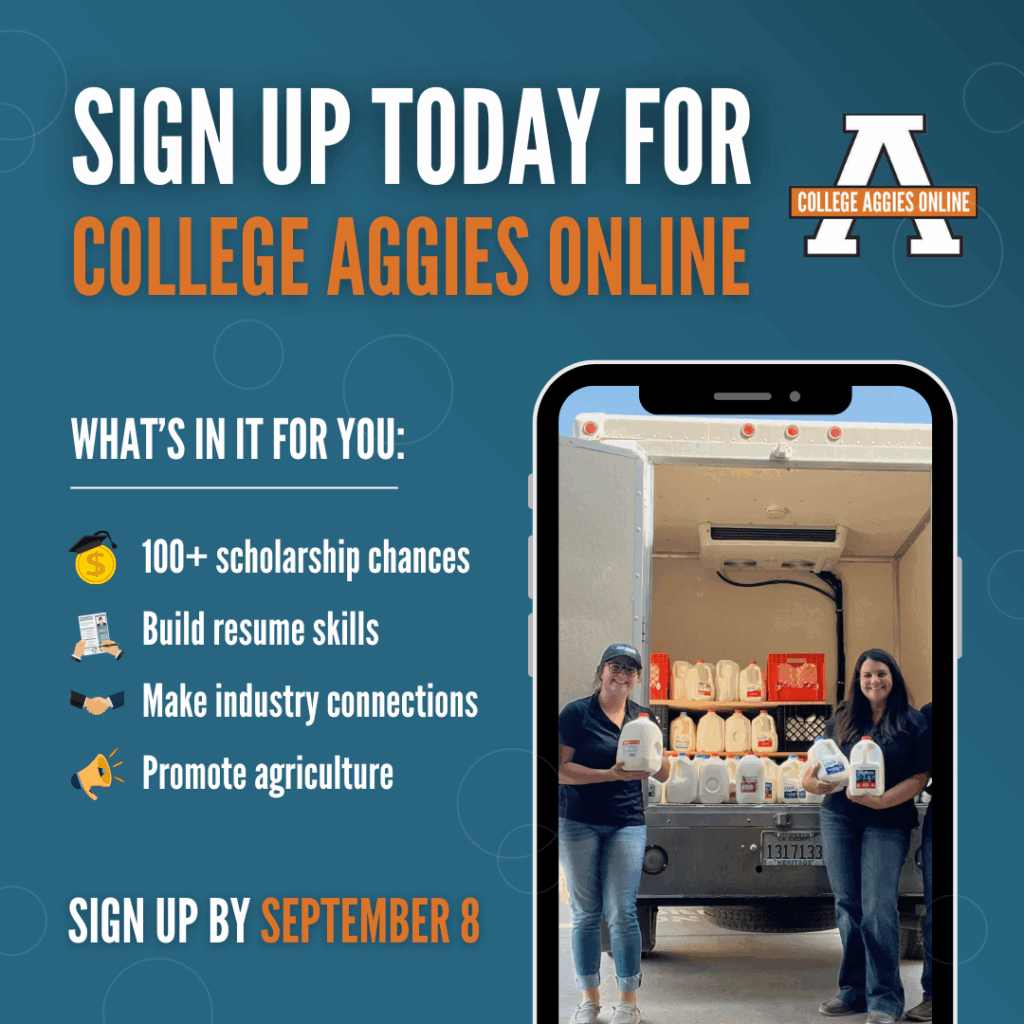Animal agriculture advocacy comes in many different forms, each with the common goal of building trust between the farm community and the public. Whether it’s a farmer sharing their daily life on social media, an industry expert speaking at an educational event, or a student participating in youth programs like 4-H and FFA, advocacy is happening all around us. You can find it in barns, classrooms, online platforms, community events, and even at family dinner tables. Each setting presents a valuable opportunity to tell agriculture’s story.
As summer winds down and a new academic year begins, thousands of college students across the country are preparing to head back to campus. For many, this time represents a fresh start—a chance to set new goals, take on new challenges, and explore new opportunities. For students with a background in animal agriculture, it’s also the perfect time to become an advocate. College offers a unique platform to raise awareness and engage others in meaningful conversations about their food choices, as many college students are grocery shopping on their own for the first time. Here are a few creative and effective ways that students can advocate for animal agriculture on campus:
Organized outreach
Being involved in a collegiate organization is the perfect way to share the story of animal agriculture with others. Many college campuses offer agricultural clubs that allow students to interact with others that have common interests. Many of these clubs have their own unique ways of advocating for agriculture, including hosting booths on campus to engage with students.
One-on-one interaction
While joining a club that aligns with your interests is a great way to get involved, true advocacy often begins at the individual level when we step outside of our comfort zones. It’s easy to talk about animal agriculture with those who already understand it, but the real impact comes when we engage with students from different backgrounds and majors, especially those who may have never set foot on a farm or interacted with livestock and poultry.
These conversations can be challenging. They may involve addressing misconceptions, answering tough questions, or explaining complex practices in a simple and respectful way. But they’re also some of the most meaningful. By opening a dialogue, we have the opportunity to build understanding and create connections that might not happen otherwise.
Social media presence has become increasingly more important over the last few years. As college students, social media is a great way to interact with peers that may not be in tune with the agriculture industry. Clubs and individuals can utilize social media to share their story and their involvement with agriculture on a public stage. Understanding how to positively use social media is very important and can be an asset to the agriculture industry.
College Aggies Online
One of the best ways to expand your role as an advocate is to sign up for College Aggies Online. This is a nine-week program designed to help students become confident communicators for agriculture. Participants gain mentorship, real-world communication skills, and the chance to compete for scholarships. Whether you participate as an individual and gain social media advocacy skills or participate with your club to focus on in-person engagement, you’ll finish the program feeling more empowered to handle these conversations. Learn more about the program and sign up here!
As members of the animal agriculture community, we have a responsibility to share the positive realities of our work, the care we provide for animals, the dedication to sustainability, and the pride we take in feeding the world. This kind of advocacy isn’t always easy. It requires patience, empathy, and a willingness to listen just as much as we speak. But in the end, it’s some of the most important and rewarding work we can do to support the future of our industry.
Every voice matters in the conversation. Whether your approach is formal and polished or grassroots and personal, your perspective plays a vital role in shaping how the public understands and supports animal agriculture. You don’t need to have all the answers—you just need to be willing to share your experiences and values.

All posts are the opinion of the author and do not necessarily represent the view of the Animal Ag Alliance.







